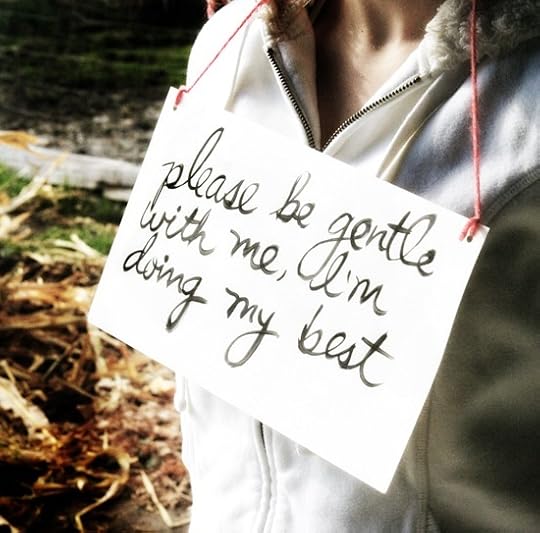Drew Myron's Blog, page 80
October 10, 2011
Fast Five with Paulann Petersen
We write to discover, to define
— moment to moment to moment —
who we are, who we are becoming.
This happens as we write.
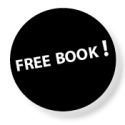 Because a few direct questions can offer insight, I'm happy to present Fast Five — short interviews with my favorite writers. Life may be short but who doesn't have time for five questions — and a chance to win a great book? (To win, simply post your name and contact info in the comments section. See details below).
Because a few direct questions can offer insight, I'm happy to present Fast Five — short interviews with my favorite writers. Life may be short but who doesn't have time for five questions — and a chance to win a great book? (To win, simply post your name and contact info in the comments section. See details below).
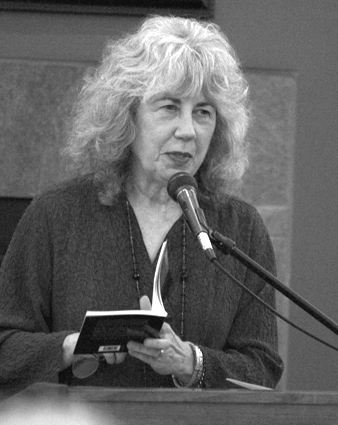 Paulann Petersen, Oregon's Poet Laureate, is a former high school teacher and author of five poetry collections and four chapbooks. She has led workshops and given readings in hundreds of places — from Powell's in Portland to Omsania University in India — and in nearly every nook and cranny of Oregon. A Portland native, she is a member of Friends of William Stafford and organizes the annual Stafford birthday readings. Petersen's most recent book is The Voluptuary, published in 2010.
Paulann Petersen, Oregon's Poet Laureate, is a former high school teacher and author of five poetry collections and four chapbooks. She has led workshops and given readings in hundreds of places — from Powell's in Portland to Omsania University in India — and in nearly every nook and cranny of Oregon. A Portland native, she is a member of Friends of William Stafford and organizes the annual Stafford birthday readings. Petersen's most recent book is The Voluptuary, published in 2010.
You are an accomplished poet and teacher, and now Oregon's esteemed poet laureate. What do you know now that you didn't know when you first started writing poems?
I know now what I couldn't have possibly known when I began writing poems: how the process itself would buoy and sustain and inform my life. We write to create ourselves, to discover, to define — moment to moment to moment — who we are, who we are becoming. This happens as we write. Not until I was immersed in the process could I begin to realize its potent effect.
You've been called a writer of embodied poetics, and have said, "I believe in body poems, poems that rise from the body." Would you please elaborate?
A poem is a creature of sound. A poem comes to us, all poems come to us, through the oral tradition. Yes, a poem has a certain life as mere text on a page. But that life as text is only a fraction of the poem's complete life. A poem can't assume its complete life until it's been given voice.
A poem has a sound form, it's comprised of a sequence and combination of sounds. A poem has musical devices. A poem has kinetic energy. A poem has risen from the physicality of its maker, and it speaks to the physicality of a listener.
For me, writing a good poem means writing an embodied poem.
You've written five full-length poetry books and taught hundreds of classes. What makes a poem work?
Sound form. Compression. Line integrity. Unpredictability — a little or a lot. A sense of incipient recklessness. A sense of conveying something that's coded in the blood. These make a poem work.
A good poem is a vehicle for transformation. It transforms the listener/reader as she or he hears or reads it. A good poem, in the process of its making, transforms the poet.
Of all your poems, which is your favorite? Why?
Hmmmmm. I avoid hierarchies when I can. Vertical structures are dicey at best. (Best. There's one of those vertical structure words!) So picking a favorite poem: that's a dicey proposition. But there are two poems that I read frequently when I'm giving readings. And both of them sonically and conceptually feel right to me, even after repeated readings. They are among a group that feel like embodied poems, time after time. "Appetite" and "Bloodline."
Bloodline
The moon is wet nurse
to roses. She suckles
each soft-mouthed poppy.
Blame her for menses.
Rail at her for the craving
to binge and purge.
Please her when you choose
to delay the day for planting,
biding your time
until night has fattened
her silver torso. Praise her
when the fleck of seed
poked down into damp dark
takes hold and swells.
Any girl-child is always
her offspring.
Upbraid her for your daughter's
sass and door-slams,
that hot hurry to be what most
differs from you.
Long ago, the moon decided
on a pathway against the route
stars take. No one else
would dare to walk
the black sky backward.
- Paulann Petersen
I'm a collector of words. What are your favorites?
I'm smitten with noun lists. I use them when I'm teaching writing workshops (workshops designed to generate new writing from participants). One of the noun lists I give to participants contains nouns I took from my own work. I often remark that I couldn't have a noun list that didn't contain blood, magpie, magnolia, ink, salt, skin and moon.
Bonus Question: Is there something distinct about an Oregon poet? or Oregon poetry?
Oregon poetry, like Oregon itself, is characterized by remarkable variety.
Oregon is mountains, ocean, high desert, rain forest. It's the hotsprings in Hart Mountain Antelope Refuge, the Church of Elvis in downtown Portland, pelicans on Klamath Lake, herons in oaks Bottom on the Willamette. Oregon is abundance; it's variety, vast and gorgeous. Our state teaches its poets inclusiveness and gratitude. Oregon encourages a wide embrace, and its poetry does indeed have a very wide embrace.
Another distinction: my bet is that there are, given our total population, as many good poets per capita in Oregon as anywhere on earth.
Meet Paulann
In Waldport, Oregon
Saturday, October 15, 2011 at 2pm
Waldport Community Center, 265 NW Hemlock St.
Free
In Medford, Oregon
Saturday, November 5, 2011
Oregon Book Fair
Free
See more events on Paulann's website.
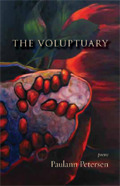 Win this book!
Win this book!
To win The Voluptuary by Paulann Petersen, add your name and contact info in the comments section below. Feeling shy? Email me, add 'Book Drawing" in subject line: dcm@drewmyron.com
Your name will be entered in a drawing, and the winner announced on Monday, October 17, 2011.
October 6, 2011
Thankful Thursday: All the small things
Today I live in the quiet, joyous
expectation of good.
— Ernest Holmes
Don't sweat the small stuff, and it's all small stuff, they say.
Do give thanks, for every small thing, they say.
So, is the small stuff a pebble in the shoe, or a flower in the sidewalk?
It's all attitude, in gratitude and in life. On this Thankful Thursday, I share my appreciation for the small things:
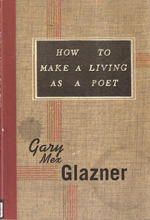 How to Make A Living As A Poet
How to Make A Living As A Poet
The fact that this book even exists makes me happy. The inspired ideas (hotel-in-residence poet, blurb-for-pay) and author interviews are quirky and fun. And the author, Gary Glazner, founded the Alzheimer's Poetry Project, so he clearly has a good heart.
Killer horoscopes
I've had some poetic and powerful astrology lines this week:
Go to a park and gawk.
You could lead a beautiful revolution, if you wanted to.
The more you indulge, the worse you'll feel.
(After reading the above-mentioned book, it occurs to me that I would be an excellent horoscope writer. In fact, I've written a squall of horoscope poems. Want your own? Zip me a line.)
Trader Joe's Oatmeal Cookie Recipe
Found on the back of the oatmeal bag, this recipe is fantastic, and it fits all my baking criteria:
- Cheap
- Easy
- Produces a gluten-free treat without sandpaper texture or cardboard taste.
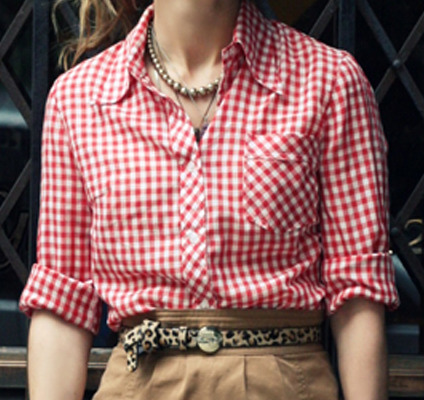 A Shirt with Small Red Checks
A Shirt with Small Red Checks
I love a deal, and I love clothes, so it's only natural that I love a great second-hand store. This week my $10 fashion find is small red checks with three-quarter sleeves. This could easily go fashion disaster so I'll minimize the bumpkin with heavy doses of khaki or black — and call it country-modern.
It's Thankful Thursday! Gratitude. Appreciation. Praise. Please join me in a weekly pause to appreciate the people, places & things that bring joy. What are you thankful for today?
October 5, 2011
Lift a line
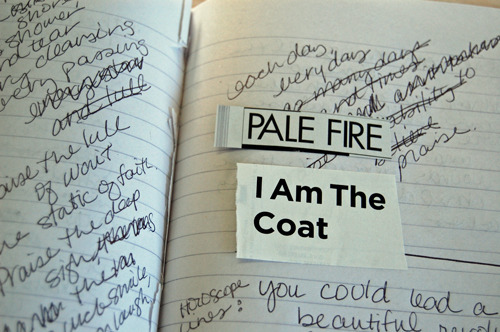
Go ahead, lift that line. Take it. Use it as your own.
I know, I know. We've been taught "Do not steal." But I'm breaking the rules and I'm giving you permission to do the same. I gather lines from magazines, horoscopes, and even phrases of poetry and prose. I cut them out, or write them down, and paste them in my journal. I use the words of others as my own springboard. Try it!
There are rules, of course. Well, just one: You must attribute. You gotta give credit to whom and where it's due.
Comb and cull: Thumbing through a magazine the other day, I was drawn to a photograph of a woman wearing a mid-thigh skirt, paired with over-the-knee socks — the very same outfit I wore on my first date with my now-husband! (I loved those socks and felt a bit racy wearing them). The image, and the memory, struck a chord so I clipped the words beneath the photo: I Am The Coat. There's gotta be a poem in there somewhere.
Let words work: I recently read "Resume of Failures," an essay by Kim Stafford that appeared in Oregon Humanities magazine. One particular line grabbed me, and I used it as a writing prompt. The line became my title. Here's the work in progress:
You may think failure is your story *
Let's say you see us. Our conversation does not stumble or stalk.
There is a lilt in my voice, brightness in his eyes. You see wide
smiles, hear quick laughs. You'd say, happiness.
You wouldn't know we spend hours pressed against water —
rivers, lakes, sometimes oceans, tears — studying rain
to understand cement skies and uncertainty.
Every graveled edge is for sale or forgotten. There are no bargains.
All appearances are flimsy replicas, cheap wine in plastic cups.
I'll pay extra to feel full-priced joy.
* A line from an essay by Kim Stafford, Oregon Humanities, Spring 2011.
Try this: Lift a line — from anywhere, anything. Can't find a line? Use a line or phrase from this post. I'd love to read what you create. Share your work here.
October 1, 2011
And what do you do?
I had always maintained the vaguely Zen notion that I was only a writer when writing. When asked the dreaded question at social gatherings, "What do you do?" I would always immediately begin dripping with sweat and mask my anxiety by saying whatever the most recent thing I had actually done: "I took a shower today; I'm a showerer, I guess."
— Eliezer Sobel
Note to Authors: Your Book Won't Change Your Life
September 28, 2011
Build a new dictionary
lex·i·cog·ra·phy
noun
1. the writing, editing, or compiling of a dictionary.
Word lovers, please join me in building a new lexicon. Ink and Famine is redefining the world — and it's great fun.
"A new world demands a new lexicon," explain the anonymous lexicographers heading the redefinition revolution. "Each round we choose four words to interpret in as many new poetic iterations as we please."
Readers are encouraged to submit their definitions in poems of seven lines or less. Every week (or so), a selection of entries are posted, along with four new words.
The last round of words included carapace and caravan. I didn't know the definition of carapace so I looked it up in my trusty, albeit traditional, dictionary, and then rewrote what it means to me in the form of a lune (3-5-3 words):
car·a·pace
[kar-uh-peys]
mildewed shame carried
in my body's every dark
and secret cell.
And I reinvented caravan, as a haiku (5-7-5ish syllables):
car·a·van
[kar-uh-van]
a reckless train rams
anger against intellect
into endlessness
Isn't this fun? Now, it's your turn. Go to Ink and Famine — and redefine the world.
September 24, 2011
Cut, Consider, Create
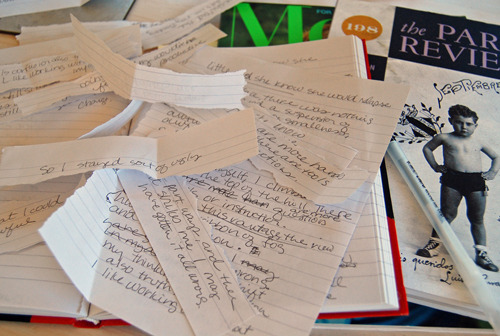
Little Did She Know She Would Relapse
On the surface, there is nothing
but style and a suspension of
modesty. I stay sort of ugly.
My lashes are the only things still
looking good. I feel awful that
I feel so awful.
I climb slowly to the top of the hill.
Air thins. Sound expands.
There are more questions than tools
or instruction.
From this vantage, a ribbon of fog
hugs the horizon and it strikes me
I have it all wrong. I shift my thinking:
Is confusion also truth?
I like working with that impossibility.
- Drew Myron
A Cut-Up Poem with lines from Paris Review, No. 198
and More magazine, October 2011.
As I've mentioned before, I love Cut-Up Poems. When my writing feels stale and my thoughts routine, the cutting process invigorates. With a Cut-Up poem, you borrow words and phrases from other sources. With each extraction you create opportunities for words and ideas to jump and explore. With draft and draft, words are rearranged and rewritten so the final poem bears little resemble to your first clipped lines (eliminating the chance of plagiarism).
How to Make a Cut-Up Poem: Take a work-in-progress poem or journal entry and copy lines onto a clean sheet. Cut apart the lines with scissors. Now mix the lines and arrange in a new order. Throw in additional lines from assorted books or magazines. Play around, shift lines, discard some and add others to make your own poem.
This process sometimes yields good poems. More often it breaks the routine and opens the door for the next good poem. Whether writing prompt or powerful new poem, it always feels good to exercise the writing muscle and produce new work.
Have your tried a Cut-Up Poem? It's fun and the results are always unexpected. I'd love to read what you create. Please share your Cut-Up Poem here!
September 22, 2011
Thankful Thursday: Bewildered

On this Thankful Thursday, I am grateful for a gentle nudge from a 13th century Persian poet.
It's Thankful Thursday, a weekly pause to appreciate the people, places, things & ideas that bring joy. What are you thankful for today?
September 18, 2011
What does your sign say?
Would I treat you more kindly if I knew your struggle?
I'm pondering this now, after reading a beautifully sad, but hopeful, tale.
Read it, then come back and tell me: What does your sign say?
September 15, 2011
Thankful Thursday: Hi there, stars
Writing poems can help kids [and adults] shift the way they see themselves, especially if they're feeling sad, walled-off or different from others. In poems, being different is an asset; we don't have to think of ourselves negatively. Our idiosyncrasies are like prizes. It's freeing to express our one-of-a-kind-soul.
— Susan Wooldridge
Poemcrazy, Chapter 26
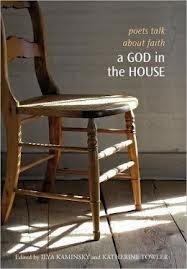 On this Thankful Thursday, I am grateful for the fog lifting, the rust flaking, and the rediscovery of Poemcrazy: Freeing your life with words.
On this Thankful Thursday, I am grateful for the fog lifting, the rust flaking, and the rediscovery of Poemcrazy: Freeing your life with words.
Do you know this book? I hope your copy is as tattered and loved as mine. Equal parts encouragement and exercise, this gem had gathered dust on my shelf until the other day when a friend and I met to talk and write.
We were both feeling laden with life. We joked that we knew a hundred words for grey. We joked that we were rusty with our writing. After a time, we laughed our way out of our dread and onto the page. We flipped through Poemcrazy and, like a tarot card, landed on Chapter 26: Hi there stars.
And with that we were lifted. We could write again.
Thank you poemcrazy. Thank you friend. Thank you rust. I love the way you flake away.
It's Thankful Thursday. Joy expands and contracts in direct relation to our sense of gratitude. What are you thankful for today? A person, a place, a thing? A story, a song, a poem? What makes your world expand?
September 13, 2011
Submission Season
 Harvard Review
Harvard Review
Ahh, September. Kids return to classrooms while writers return to computers. In the literary world, September starts the unofficial Submission Season. Writers send their work into the world, hoping to catch the attention of editors, publishers and agents.
As with all things, there is protocol. There are rules. Recognizing that "submission guidelines can be vague, especially for those new to the submission process," the Harvard Review offers a handy how-to guide.

